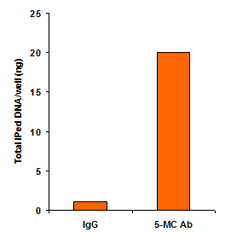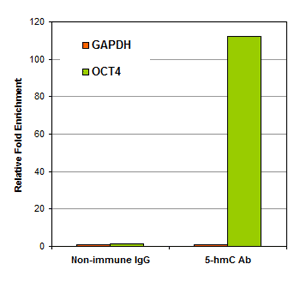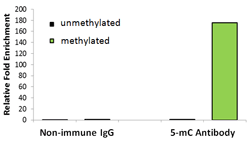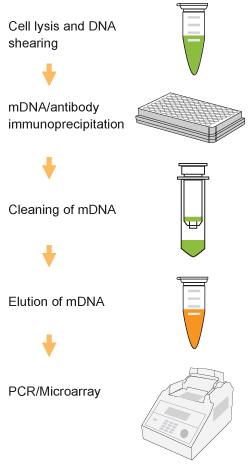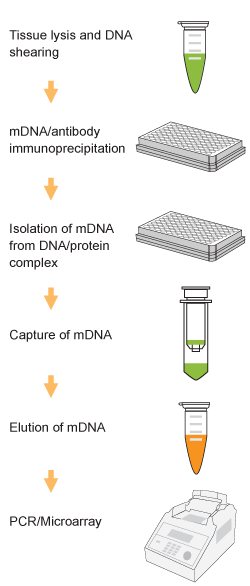Introduction
Methylated DNA immunoprecipitation (MeDIP) is a technique used to identify regions of the genome that are methylated, and involves the specific capture and enrichment of methylated DNA fragments. Methylation is an epigenetic modification that can affect gene expression and is involved in a variety of biological processes, including development, differentiation, and genomic imprinting.
Method
- The DNA is fragmented
- An antibody that specifically recognizes methylated cytosine residues in DNA is used
- The DNA is incubated with the antibody
- The antibody binds to the methylated DNA, forming a DNA-antibody complex
- The DNA-antibody complex is isolated using a process called immunoprecipitation
- The isolated DNA is analyzed using techniques such as polymerase chain reaction (PCR) or sequencing to identify the specific regions of the genome that are methylated
Applications
MeDIP is often used in conjunction with other techniques, such as microarray analysis or next-generation sequencing, to study the role of DNA methylation in various biological processes and to identify potential therapeutic targets for diseases related to abnormal DNA methylation patterns.




 Cart (0)
Cart (0)





